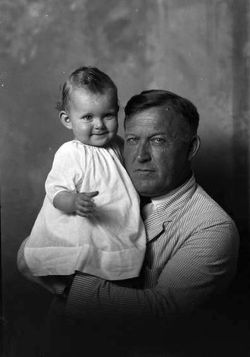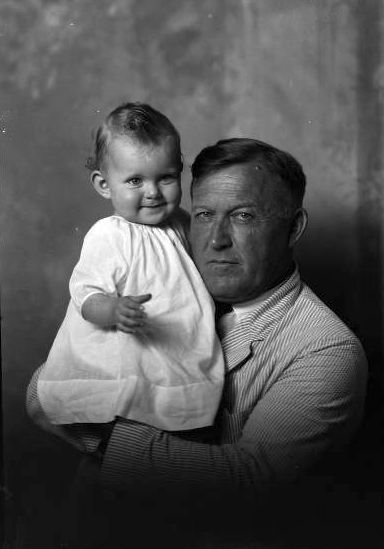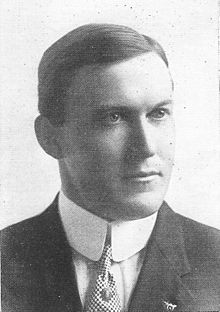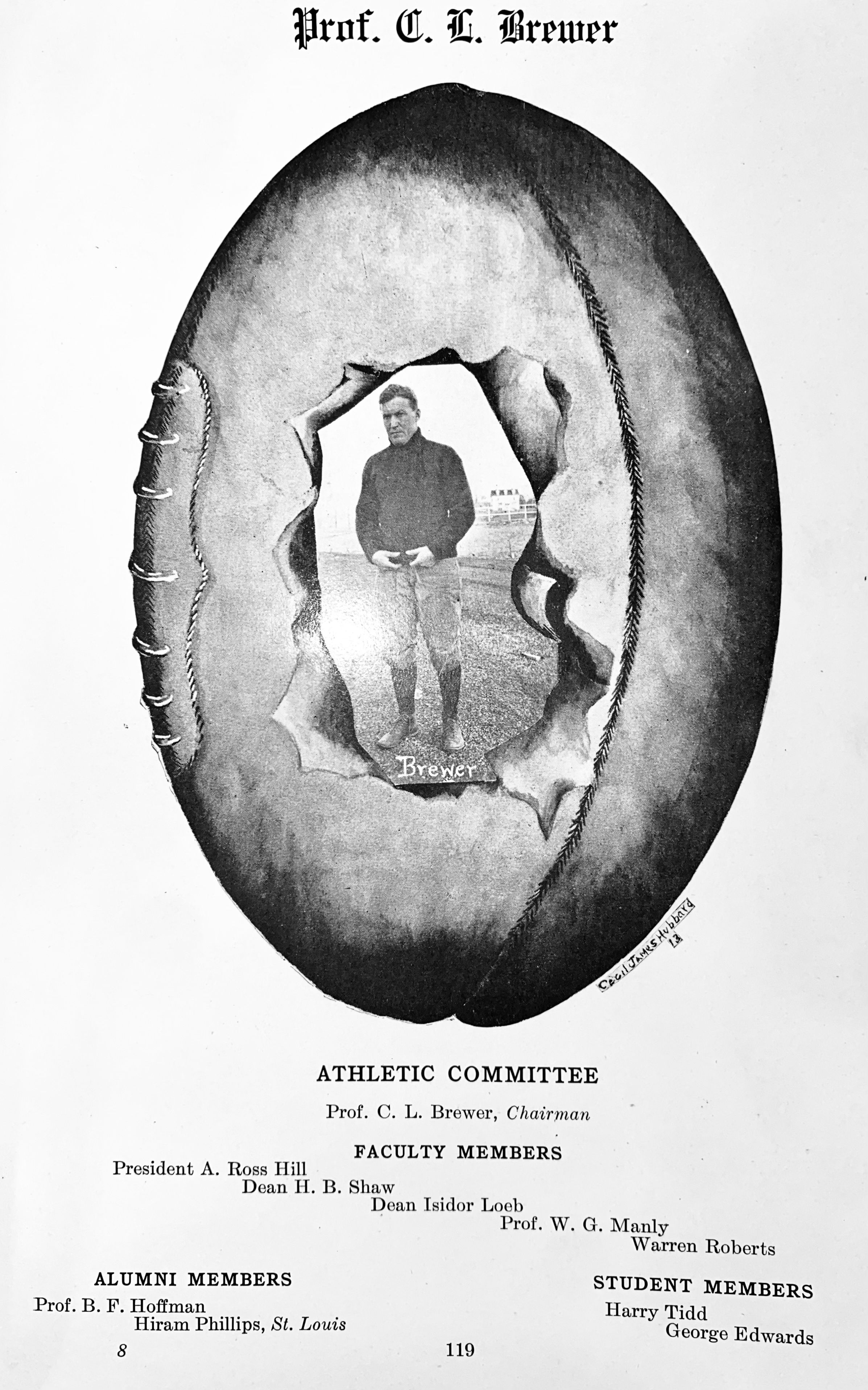From 1903 to 1910, and in 1917 and 1919, Brewer coached football at Michigan Agricultural College, where he compiled a 58–23–7 record, making him one of the school's most prolific coaches.
From 1911 to 1913, he coached football at the University of Missouri, where he compiled a 14–8–2 record. During his years at the Missouri, Brewer fulfilled many roles. He was hired as athletic director in 1910 and wasted little time in leaving his mark at the university, as he was one of the founding members of the M Men's Club. He founded the club on the eve of the 1911 football game against Kansas, and the organization became the sponsor for intramural sports championships at the university. Brewer was also the coach of the 1911 baseball team, which had an 8–3 record. He assumed the leadership of the baseball team a second time from 1914–1917 and achieved a 49–15–3 record. He remained at the Missouri until 1917 and at different periods also coached basketball and track. Brewer is also credited with beginning the homecoming tradition at the University of Missouri and the entire nation with the 1911 Kansas vs. Missouri football game.
Brewer left Missouri at the end of the 1917 school year to serve in World War I. He spent the next year directing training camp activities at universities around the country. He returned to Michigan Agricultural College after the war. In 1922, he coached football at the University Farm in Davis, California, where he compiled a 3–4–2 record.
Brewer returned to Missouri in 1923 and was named athletic director and a professor of physical education. His second tenure as athletic director lasted until 1935. During these twelve years of leadership, he helped oversee the construction of Brewer Fieldhouse, which was named for him on February 8, 1930. Brewer also coached the Missouri Tigers baseball team one final time from 1933–1934 and finished with a 12–17 record. His final record as Missouri's baseball coach was 69–32–3. Brewer remained with the university as a professor until his death. He died on April 16, 1953 at the age of 77 in Columbia, Missouri.
Missouri Death Certificate # 13245
From 1903 to 1910, and in 1917 and 1919, Brewer coached football at Michigan Agricultural College, where he compiled a 58–23–7 record, making him one of the school's most prolific coaches.
From 1911 to 1913, he coached football at the University of Missouri, where he compiled a 14–8–2 record. During his years at the Missouri, Brewer fulfilled many roles. He was hired as athletic director in 1910 and wasted little time in leaving his mark at the university, as he was one of the founding members of the M Men's Club. He founded the club on the eve of the 1911 football game against Kansas, and the organization became the sponsor for intramural sports championships at the university. Brewer was also the coach of the 1911 baseball team, which had an 8–3 record. He assumed the leadership of the baseball team a second time from 1914–1917 and achieved a 49–15–3 record. He remained at the Missouri until 1917 and at different periods also coached basketball and track. Brewer is also credited with beginning the homecoming tradition at the University of Missouri and the entire nation with the 1911 Kansas vs. Missouri football game.
Brewer left Missouri at the end of the 1917 school year to serve in World War I. He spent the next year directing training camp activities at universities around the country. He returned to Michigan Agricultural College after the war. In 1922, he coached football at the University Farm in Davis, California, where he compiled a 3–4–2 record.
Brewer returned to Missouri in 1923 and was named athletic director and a professor of physical education. His second tenure as athletic director lasted until 1935. During these twelve years of leadership, he helped oversee the construction of Brewer Fieldhouse, which was named for him on February 8, 1930. Brewer also coached the Missouri Tigers baseball team one final time from 1933–1934 and finished with a 12–17 record. His final record as Missouri's baseball coach was 69–32–3. Brewer remained with the university as a professor until his death. He died on April 16, 1953 at the age of 77 in Columbia, Missouri.
Missouri Death Certificate # 13245
Family Members
Sponsored by Ancestry
Advertisement
Records on Ancestry
Advertisement


















